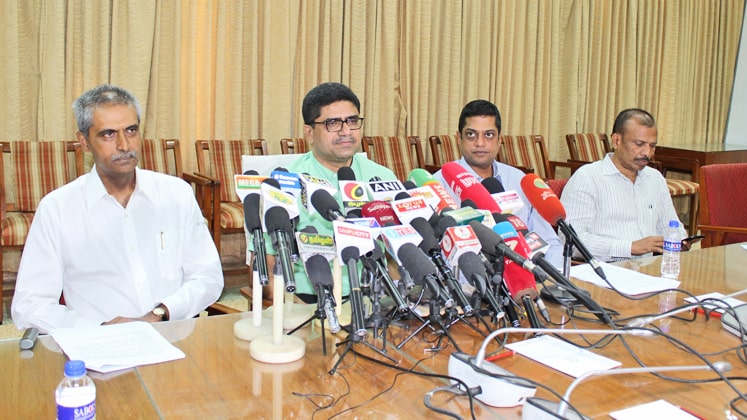
The Indian textile industry is already grappling with new challenges and now Tamil Nadu, having 1/3rd share in India’s textile trade, is the latest sufferer.
The state’s textile industry is unhappy with the proposal of Tamil Nadu Generation and Distribution Corporation Limited (TANGEDCO) to curtail certain lifeline benefits such as wind power banking, group captive power purchase by MSMEs for less than 1 MW, removal of old wind mills (repowering), etc.
To highlight the issue, T. Rajkumar, Chairman, CITI, Dr. K.V. Srinivasan, Chairman, TEXPROCIL and Ashwin Chandran, Chairman, SIMA jointly addressed a press meet and requested the state Government to support on the aforementioned issues. They also asked the central Government to clear pending payment and support on various fronts.
All these and few more steps are necessary to avoid over 3,500 spinning mills (majorly MSME units) from becoming non-performing assets (NPAs) and prevent job losses for several lakhs of rural masses especially women.
They appealed to the Chief Minister of the state to continue the existing energy benefits like wind power banking, group captive power purchase by MSMEs for less than 1 MW and removal of over 25-year-old wind mills in order to enable the state’s textile industry remain competitive.
It is pertinent to mention here that there are more than 1,500 MSME textile mills operating in Tamil Nadu and they are sourcing open access power either under group captive or through their own wind mills. If the open access is denied for the MSME textile mills, the industry will not be able to survive.
“When the whole Indian economy is under stress, the restrictive move on the part of Government of Tamil Nadu for curtailing the open access for industrial units having less than 1 MW will affect more than 1,500 textile units in Tamil Nadu. Therefore, it is appealed to kindly continue to extend the open access facility for industrial units of less than 1 MW,” the industry representatives said.
The issues of wind mills’ banking facility becomes important as the textile mills in the state survive mainly because of the advantage in power cost due to installation of wind mills with the facility of banking so far. The state Government used to give good support in this regard. The industry has urged to continue the banking facility. “Even if TANGEDCO is incurring any loss on this score, the industry has already assured that wind mills will compensate for the banking losses,” the representatives insisted.
The trio were strongly of the opinion that the recent instructions of TANGEDCO not to wheel and adjust the power generated by wind mills which served its lifetime of 20/25 years will have an adverse effect. So, construction of new wind mills will involve huge capital which, at present, the industry is not able to afford. Therefore, old wind mills are to be permitted to continue their wheeling for the captive consumption.
Thanking the central Government for various relief measures, they also urged the release of Government dues. The industry has been facing severe liquidity crisis mainly due to the huge accumulation of Government dues especially TUF subsidies amounting to Rs. 11,000 crore and RoSL/RoSCTL arrears since 7 March 2019 and GST refund.
They also requested that MSMEs Debt Restructuring Package may be extended for the entire textile industry as this would save many companies from turning into NPAs.






